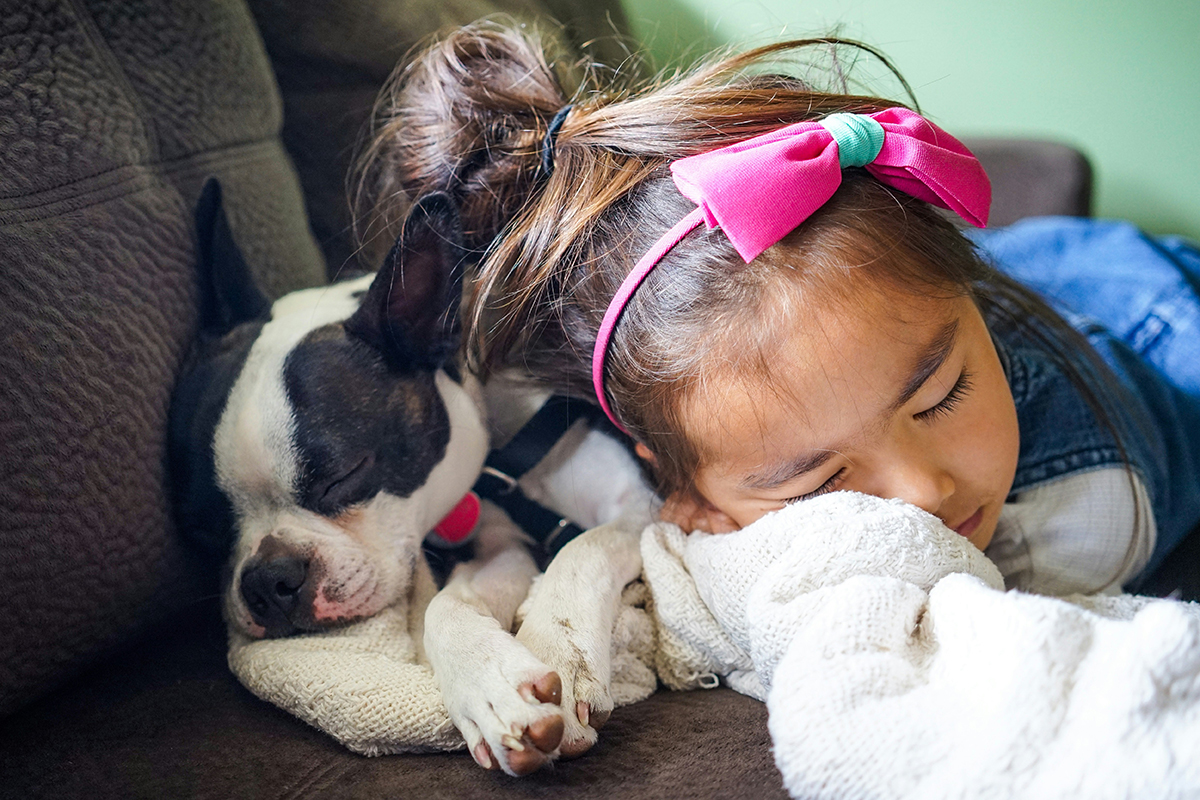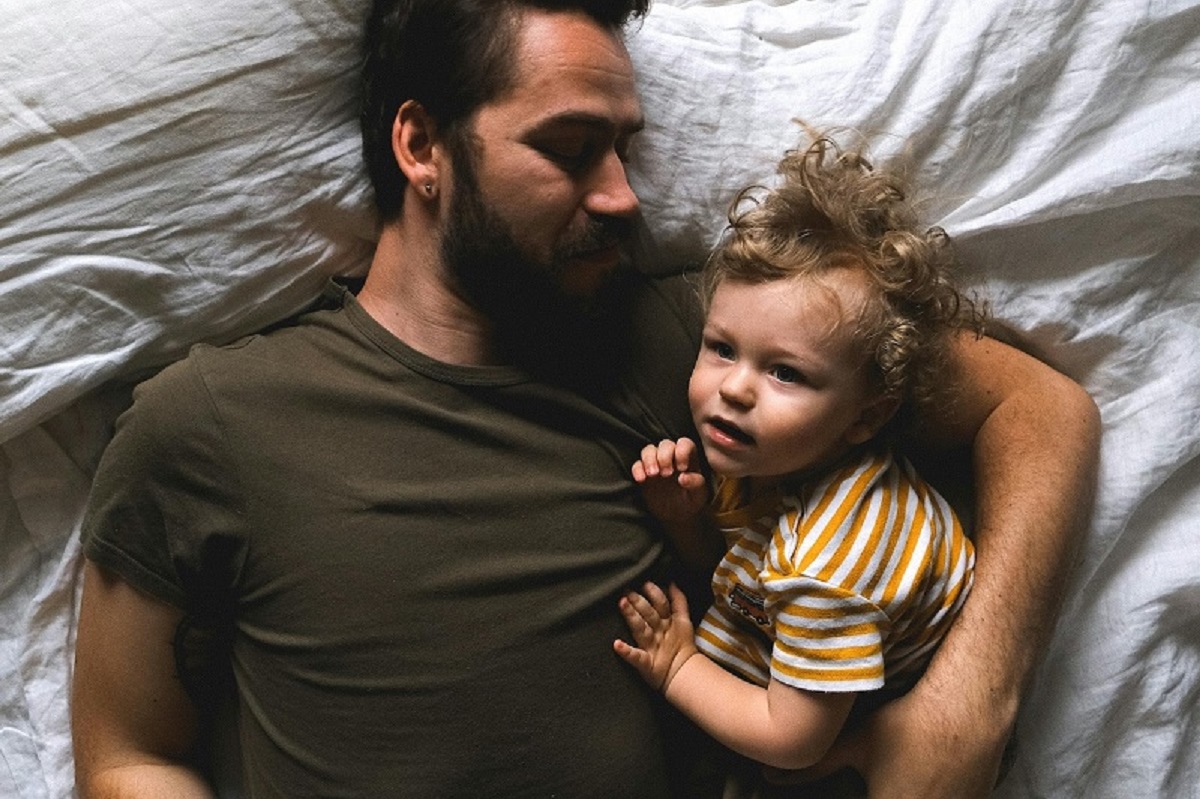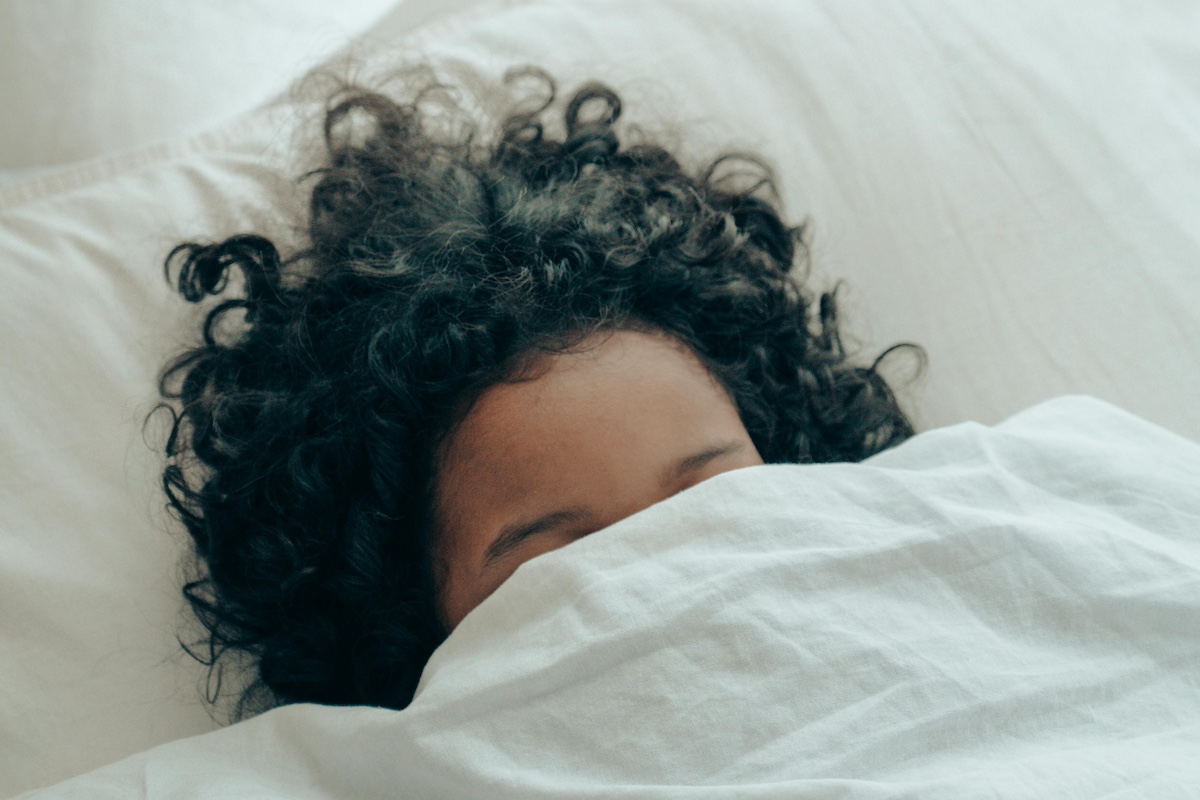How do we get kids to sleep? I’ve written a lot about this in the context of babies, but toddlers and older kids are a whole other ball game. Sleep training — which can be an effective method for babies in a crib — doesn’t really work for a 4-year-old who can get up and leave their room. It is up to you what sleep looks like in your family and where it takes place. However, if your goal is for your child to sleep independently through the night in their own room, parents often find that hard to implement.
I’ve talked before about general principles on sleep for older kids, and many people have asked for more specifics. As in: I hear you about bedtime routine, but literally What do I do? Today on the podcast, we have perhaps our most practical guest ever. Jessica Berk is a sleep consultant for toddlers and preschoolers, and we speak very directly about why sleep is difficult (but also important) and how to get your kids to bed.
Here are three highlights from the conversation:
Why is it important for your child to get enough sleep?
But I think the American Academy of Pediatrics says that 25% or 30% of kids under 5 years old do not get enough sleep. And we know how important sleep is. You can say this more than I can, but science shows us that. In the short term there are major issues, mostly related to marital satisfaction, maternal depression, but then even for the child, later in life, sleep issues in childhood have been shown to impact their performance in school, their attention, and things like that. And I’ve worked with many families whose kids… The doctor says, “Well, they may have ADHD or hyperactivity,” but then once the kid is sleeping, a lot of those symptoms go away because really, really chronically overtired kids look clingy and hyper and can’t calm down and they’re always going, going, going. So sleep is such a core foundational need.
Why is getting your toddler to sleep so challenging?
So when you say it’s harder, it is harder because your kid can say heartbreaking things and make you feel guilty and cry, and they’re just so much more verbal and they’re saying things like “I’m scared of this” or “I have to go potty.” And you’re like, “Well, are you scared? Do you have to go potty for the 89th time? Maybe you do.”
So the first thing that I always say to parents is “Yes, it’s a little bit more difficult in that way, but also I feel like in a lot of ways it can be easier.” And parents are surprised by this, because once they learn to understand where their kid is at developmentally and you learn how to use it to your advantage, instead of fighting against it and trying to control your kid — if you learn how to work with them — then it can actually make the process a little bit easier.
What’s the most important first step in establishing better sleep habits?
So putting your kids to bed earlier is key, because what happens is kids get cranky, kids get overtired, and then they get a second wind and then they’re up until 9, 9:30, and then everything is a disaster. So first hardcore tip, just move bedtime 15 minutes earlier tonight from wherever you are.
Full transcript
This transcript was automatically generated and may contain small errors.
One of the people thought that it was appropriate to have your kids sleep in your bed, and the other couple had insisted on their children sleeping in their room. They got quite heated. And what was striking was both that apparently one never gets over fighting about things like sleep with other parents who you disagree with. But also that the father of one of the couples remembered so vividly his attempts to get his child to sleep in her room. He recounted that when they had finally decided to insist that she go back to her room when she came out at night, that the first night he returned her to the room 130 times. 130 times. He remembered the number. The next night it was 44 times. After that, she stayed in her room, which he viewed as a success. That of course, led to more arguing, the conversation ended.
Sleep, for parents, is one of the hardest things. When we have a baby, we expect sleep deprivation when they’re infants. And we talk a lot both on Parent Data and in general about how to get small babies to sleep better, thinking about sleep training, thinking about versions of cry it out or not cry it out. But what I think gets much less attention is that these issues with sleep continue as our kids get older.
One of the most common questions that I get at Parent Data is, “How do I get my toddler or elementary school age kid to sleep better?” We don’t expect this, but the sleep deprivation that now has built up over 3, 4, 5 years can be really damaging to parent mental health. We worry that our kids aren’t getting enough sleep, and often bedtime becomes a scorched earth disaster movie.
I’ve talked about sleep for toddlers in general in a lot of my writing. I’ve talked about the value of consistency, about ways to generate a better bedtime routine, but it turns out most people think that that’s not concrete enough. So today on the podcast, I brought on Jessica Berk. Jessica is a sleep consultant, and we’re going to talk very concretely about methods for getting kids who can leave the room on their own to stay in their room. We’re going to talk about the importance of sleep, but we also talk about just literally how can one implement this kind of sleep environment that will help your kids sleep better, and just as importantly, will help you sleep better. And with that, after the break, Jessica Berk.
Though, I spend an awful lot of time talking about why sleep is important and how the data says the sleep is important. And I just want to put a pin in that because I don’t think that we speak enough to parents about why their own sleep is important, why the sleep that their kid gets is important, why it is worth it to undertake some things which are a little costly in the short term because it’s going to deliver good sleep for you and your kids later. So do you want to tell me why you’ve devoted your career to the importance of sleep?
And we know how important sleep is. You can say this more than I can, but science shows us that. in the short term there are major issues when it comes to mostly related to marital satisfaction, maternal depression, but then even for the child later in life, sleep issues in childhood have shown to impact their performance in school, their attention and things like that. And I’ve worked with many families whose kids… The doctor says, “Well, they may have ADHD or hyperactivity,” but then really once the kid is sleeping, a lot of those symptoms go away because really, really chronically overtired kids look clingy and hyper and can’t calm down and they’re always going, going, going. So, sleep is such a core foundational need.
Their parents said that they behaved worse, their teacher said they behaved worse, they did worse on cognitive testing. And it gives you a sense of both just how important an adequate amount of sleep is and not just don’t stay up all night, but actually even an hour for a few days matters. It also tells you that if you can fix this, if you can get your kid to sleep more if they’re not sleeping enough, you may see returns right away. You don’t have to have them sleep enough for three years to get the benefits. You could literally get the benefits in a week.
And then the other thing people say is that their child is so proud of themselves when you actually set up some structure so the child knows and has a good understanding of the expectations and the rules around sleep. It allows kids to feel so proud of themselves. And then a lot of times I also hear that parents feel more connected to their kids because so often there is so much drama between the parent and the child. It really feels like a you versus them when it comes to sleep problems. If your kid refuses to go to bed or is waking up all night, that usually isn’t great for that parent-child interaction.
The baby can’t leave the crib. That’s it. You just do it and it’s just tractable. It’s easy to explain to somebody when we get to older kids, your kid is playing more of a role in pushing back. That strikes me as the most challenging piece of what we would refer to as sleep training or sleep coaching in the older age group that you can’t just say, “Do this and then here is how it’ll work,” that there’s a third person effectively in the conversation in a way that there’s just not with a baby. So with that jumping off point, what happens that causes people to call you, is basically what I’m asking. Why are people calling you?
But also this little person who’s like, let’s say three, four or five years old who is really coming into this age where they want control of things. They feel like they’re a big kid and they want some more control of what’s going on in their life. They want some say in things, they want to feel heard. So there’s a lot going on there developmentally. So when you say it’s harder, it is harder because your kid can say heartbreaking things and make you feel guilty and cry, and they’re just so much more verbal and they’re saying things like, “I’m scared of this, or I have to go potty.” And you’re like, “Well, are you scared? Do you have to go potty for the 89th time? Maybe you do.”
So putting your kids to bed earlier is key because what happens is kids get cranky, kids get overtired, and then they get a second wind and then they’re up until 9:00, 9:30, and then everything is a disaster. So first hardcore tip, just move bedtime 15 minutes earlier tonight from wherever you are. That’s the best tip to take away from this whole episode. But so knowing where your kid is at developmentally is step one so that you can work with them to set up a bedtime routine that they’re going to rebel less against. That’s the goal. So really talking to your kid about, “Okay, what do you want to do? What kind of things do you like to do before bed?” Have a brainstorming session with them. Try to put some pieces of a routine together that the routine does not need to be more than 15 minutes.
It can be short, but ask your kid what they like to do, write it out step by step. Have your kids say, “I want to brush my teeth before I put my PJs on.” Anything to give them a sense of control. You can do that with a kid who’s two and a half years old just so that they have a sense that this is their bedtime routine. Draw little icons, tape it on the wall, let them be in charge of bedtime. And then anything that you used to stall, if they’re asking for water snacks, add that into the bedtime routine so that when they don’t need to ask for it at the end, or if they do, you as the parent can say, “You already had that. We did the snack, we’re done.” I think the second thing to understand too is a lot of parents, and I’m sure you probably see this too, Emily, is like they’ll come to me and they just say like, “Oh my gosh, my kid is waking up every night at two in the morning trying to crawl into my bed. How do I make it stop?”
The other night I was asleep and I have a little fragrance thing that’s plugged into one of the outlets, and I’m asleep, and then all of a sudden I wake up and I woke up because the thing was blinking purple. It wasn’t making a noise, nothing happened. It was just, I could sense there was something different in my room. It’s the same with kids. If you are laying in their bed until they’re asleep and then you’re army crawling out and hoping the door doesn’t creak, your kid’s going to eventually at some point in the night wake up and realize that you’re gone and then they need you to come back again because you’ve made yourself an integral part of their sleep process.
It’s kind of endlessly customizable based on people’s parenting style, your kid’s kind of personality, stuff like that. And so I like to teach families, if you’re not quite sure, you kind of start one way, but there are signs that this isn’t going to really work for you and not be as effective, and it may be time to switch to something else. I tell people this all the time, “If we could convince your child or use any type of language to explain to your child how important sleep is and why we need to do this and here’s what’s going to happen, and then they would just say, ‘Sounds good, Mommy, see you in the morning.'” That’s not how it works. That’s just not how it works. But also it’s important to remember that kids are going to pick up on our emotions as parents.
And so this is a lot of times what’s happening in houses already, which is bedtime sucks. Parents know it going into it. That’s probably part of the reason why bedtime becomes because parents are like, “Oh, they’re playing. Let’s just wait a little while.” And then they’re feeling the anxiety and the dread, and then they’re like, “Okay, time to go for bed.” And they’re feeling all anxious and the kids pick up on that too. So I do think that it’s important for parents to remember that sleep is instinctual to us as humans. By the time kids are four or five months old, and healthy, they have the capacity to sleep through the night independently without needing a parent. So the things that happen between four months old and five years old are really just habits that are changeable. It doesn’t mean it’s going to be easy and sunshine and roses for the first few days, but it’s changeable. And if it’s important for your family, then it’s totally doable.
And this has gone on for years. And so if that is not working for your family or if you just don’t want your child to sleep in your bed, or if your child sleeps in your bed like a lunatic because kids move around so much. If they sleep horizontally and they’re kicking you in the face all night. Or if I hear this a lot too, parents are like, “I don’t mind if my child sleeps with me, but they don’t sleep. They stay up all night and they’re trying to talk to me,” and it doesn’t seem like they’re sleeping well even in the parent’s bed. So if you’re in a situation that isn’t working for you as the parent, or you can tell that your kid is not getting enough sleep, all I’m here to say is I can help you with that. There are solutions. But I’m not here to say, “Don’t ever co-sleep. That is a horrible way to raise your children.” No, do whatever works for your family. If you need help, I’m here.
With older kids, you could hang a bell on their door so that you might be awakened. What I actually did with my daughter, because this went on until she was maybe 10 or 11, is I got, which I ordered off Amazon, one of those motion detectors. So you put the little motion detector in the hallway beside her room, and then I put the chime, I plugged it in my room so it would chime, it would make a noise whenever she was on the move, just so I can make sure to kind of guide her back to bed. But that’s the best thing you can do in that situation. But usually they’re-
The best thing that ever happened to sleep in my house was the time that I accidentally gave my daughter a heavily caffeinated tea at four o’clock in the afternoon. We didn’t know it was caffeinated, it was just like an accident. And she was up until, I think maybe she was like nine or 10, and she was up until 1:30 in the morning and just couldn’t go to sleep. And the next day she felt terrible and there was a speed test in math, and she did very poorly on it. She still, now she’s 13, if you asked her why is sleep important, she would tell you, “One time Mom messed up and gave me this caffeinated tea, and it was a hundred percent her fault.” And it really was so crucial for her to see that feedback even… Of course, I wish I hadn’t given it, I guess. Actually, I don’t really, because it was so good for that and now we have a lot of those conversations. I do think you can bring your kids into that as they get big.
“Tell me about your day.” Or negative attention, which is, “No, stop. I said go to bed, do this right now. I have to carry you back to your room.” That’s all attention. And so what happens at nighttime is we spend a lot of time pouring our negative attention on our kids, and that kind of keeps those behaviors going and going, going. It’s like watering plants. Those are the seeds. We’re watering them. So if we can switch it up and give our kids an idea of what we’re looking for, what to expect, and what is good behavior, and then we really try to focus on praising that even. And I tell parents, “You should praise them.” It’s like, “Feel dumb.” Be like, “Great job brushing that tooth. Great job keeping that first pair of PJs on,” whatever it is that your kid’s been struggling with. If you can just praise the heck out of something tiny and focus on that and try to ignore the bad stuff, then you’ll start to see more of the good stuff.
If you have thoughts on this episode, please join the conversation on my Instagram @profemilyoster. And if you want to support the show, become a subscriber to the ParentData Newsletter at parentdata.org, where I write weekly posts on everything to do with parents and data to help you make better, more informed parenting decisions.
For example, last year I wrote an article that stated, point blank, that your child isn’t getting enough sleep called, appropriately, “Your Child Is Not Getting Enough Sleep” – what the studies said and what you can do about it. Check it out at parentdata.org.
There are a lot of ways you can help people find out about us. Leave a rating or a review on Apple Podcasts. Text your friend about something you learned from this episode. Debate your mother-in-law about the merits of something parents do now that is totally different from what she did. Post a story to your Instagram debunking a panic headline of your own. Just remember to mention the podcast too. Right, Penelope?
Community Guidelines
















Log in